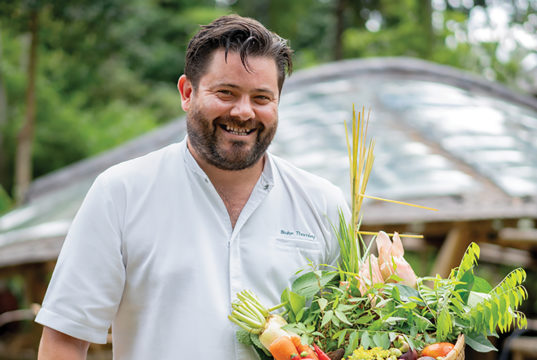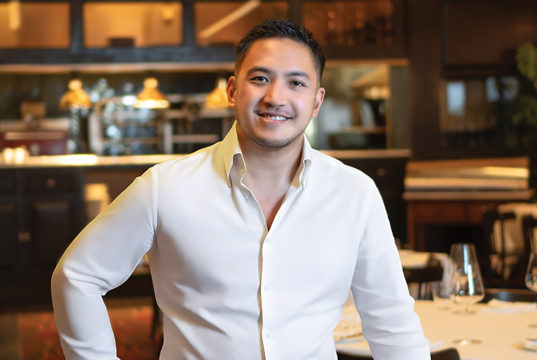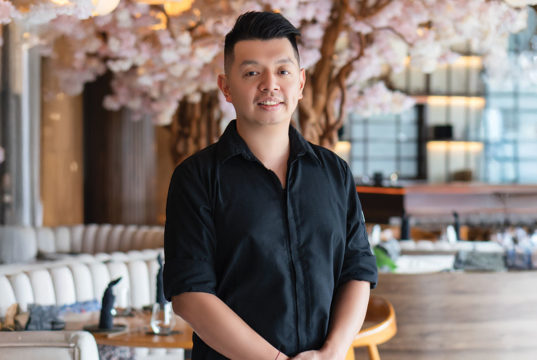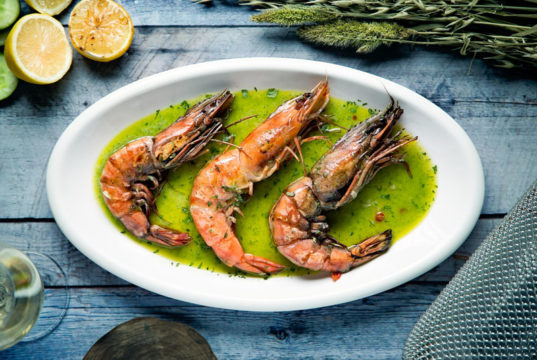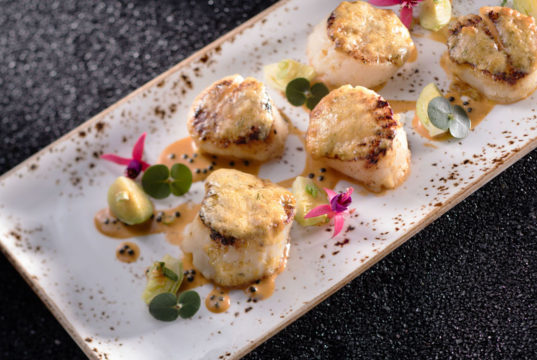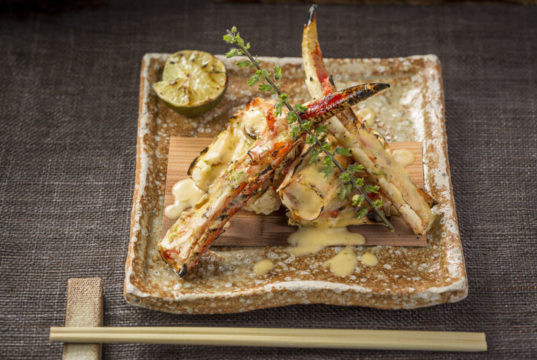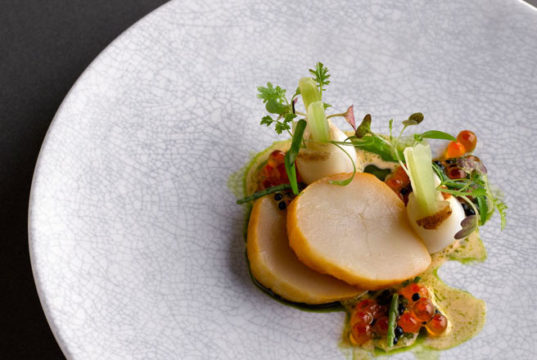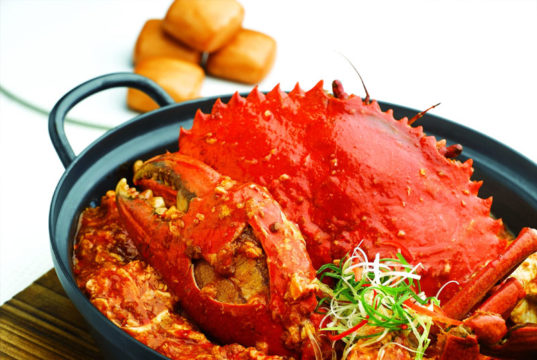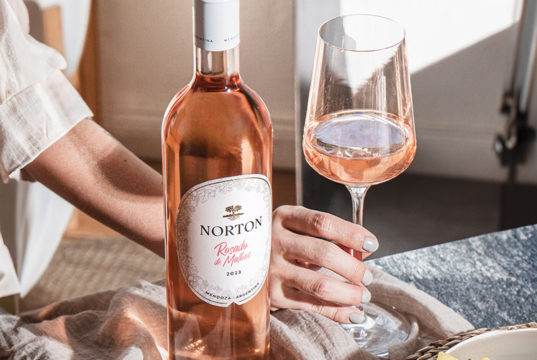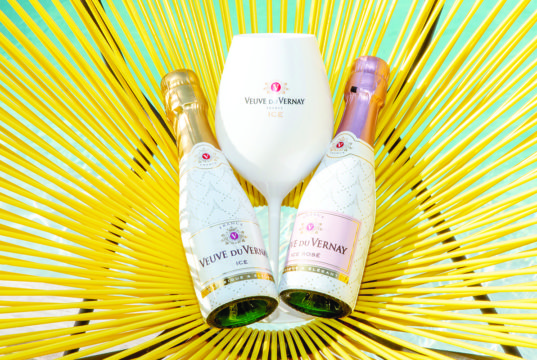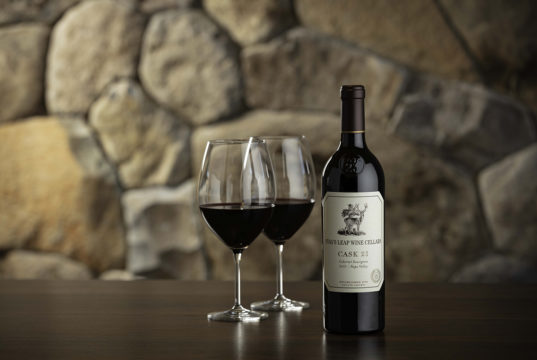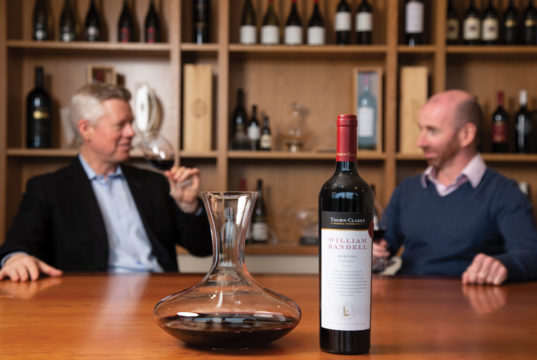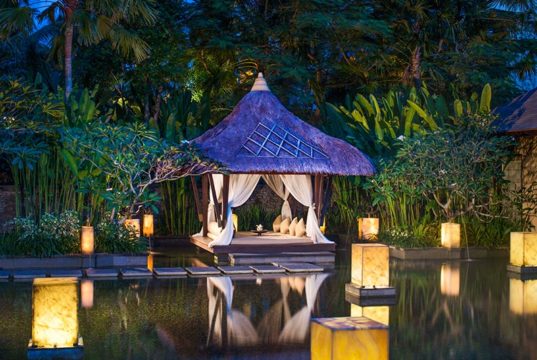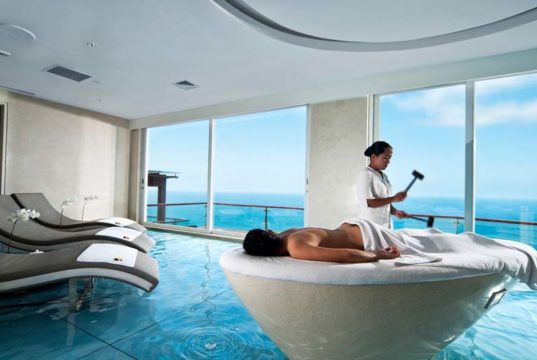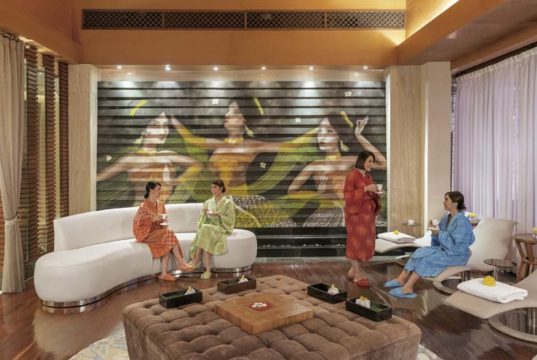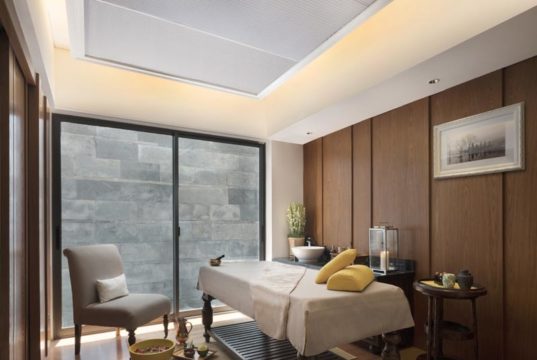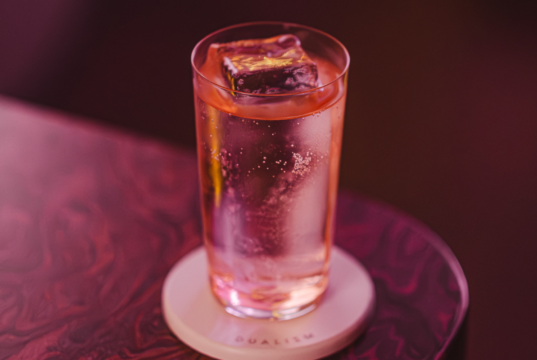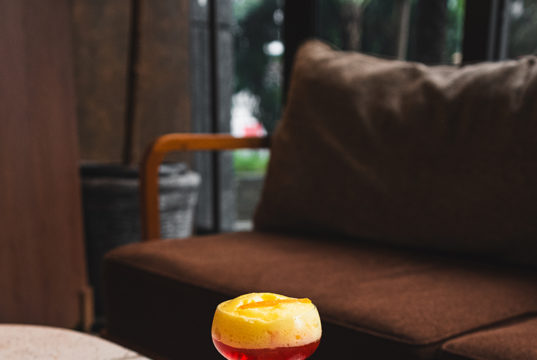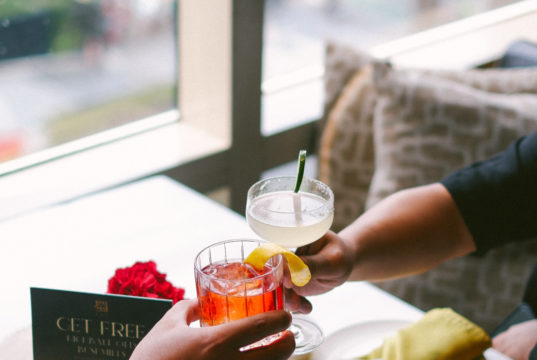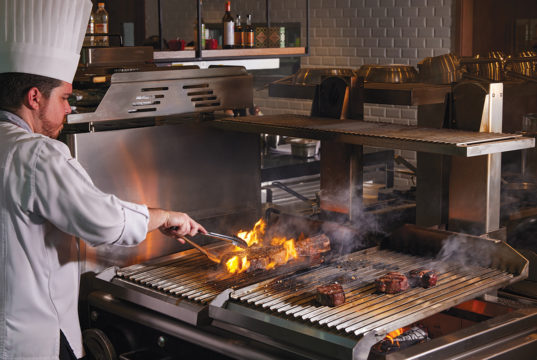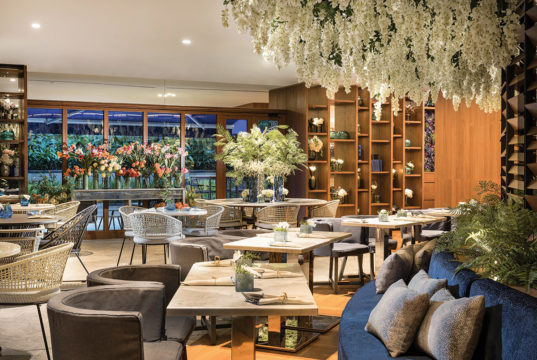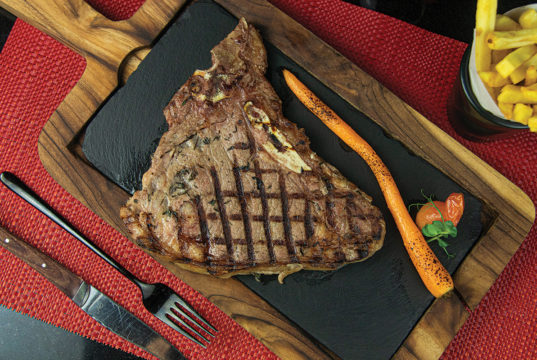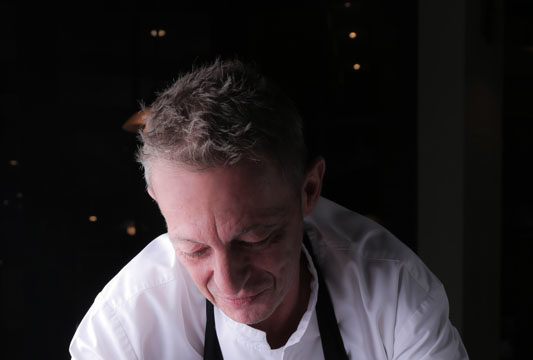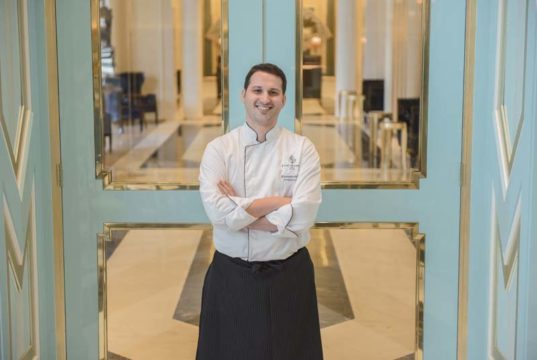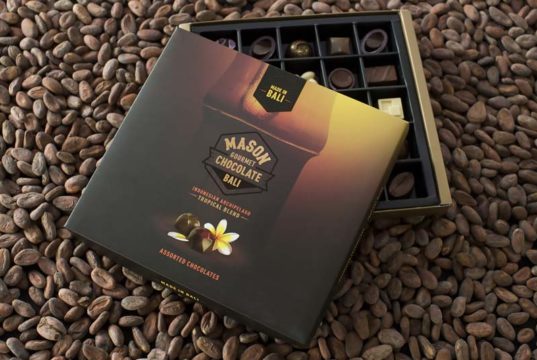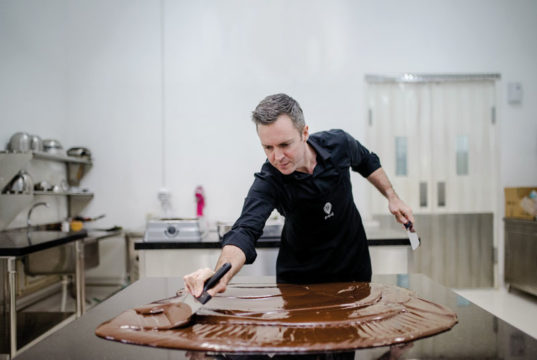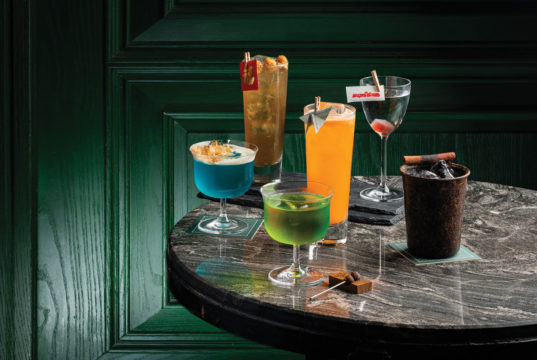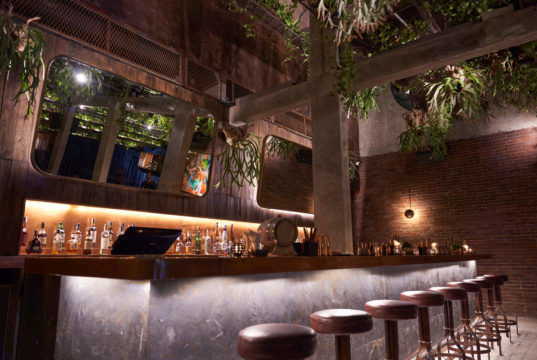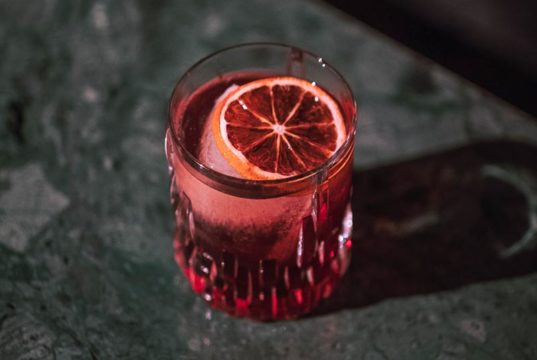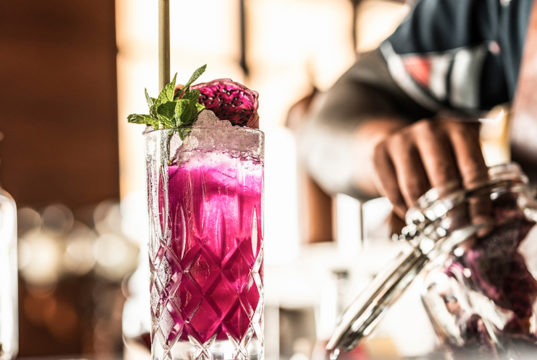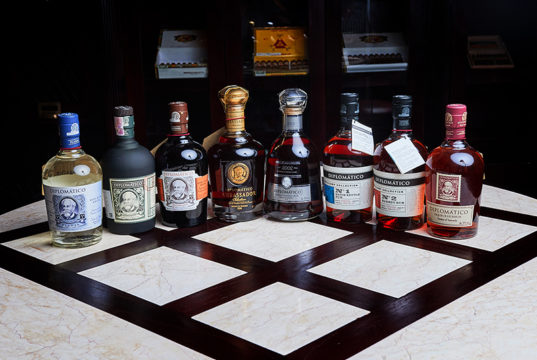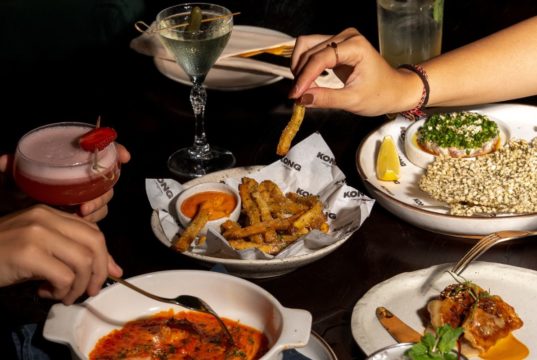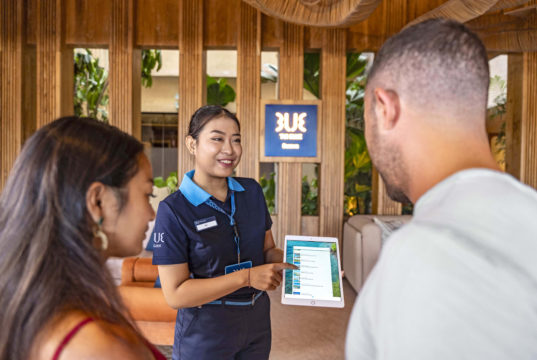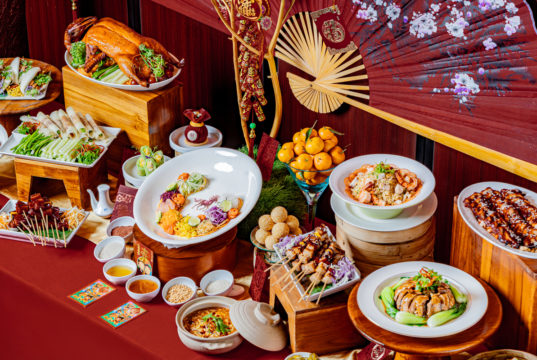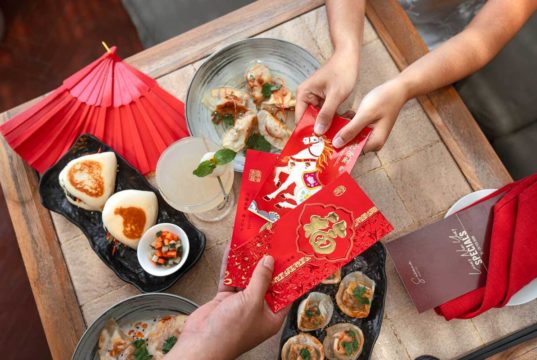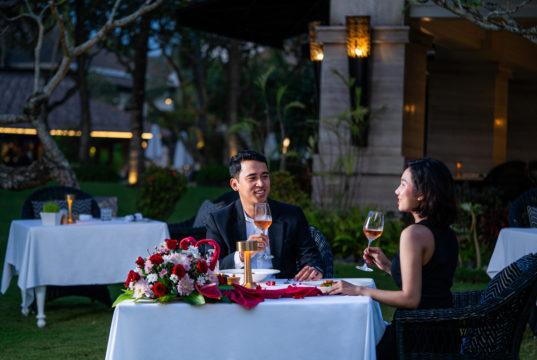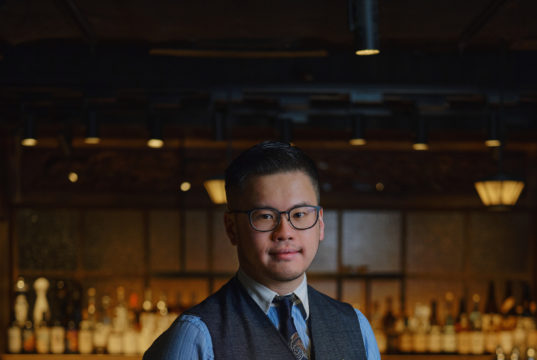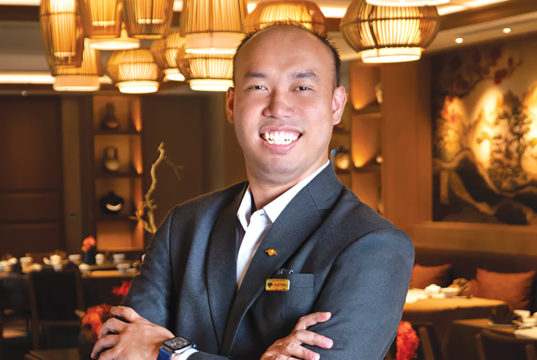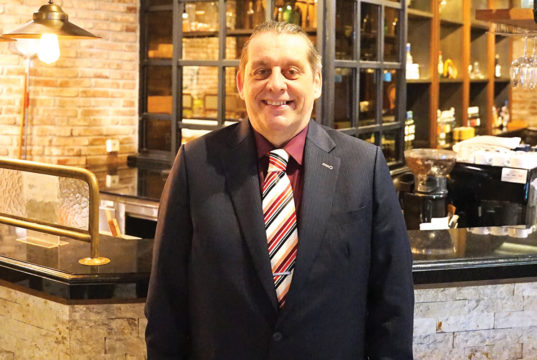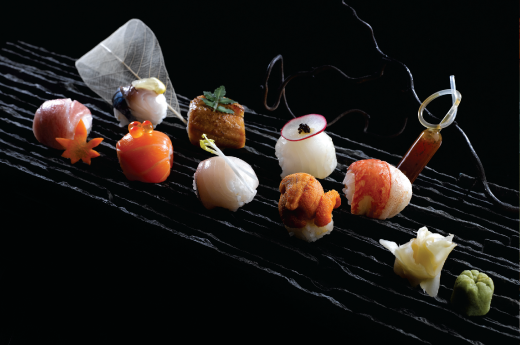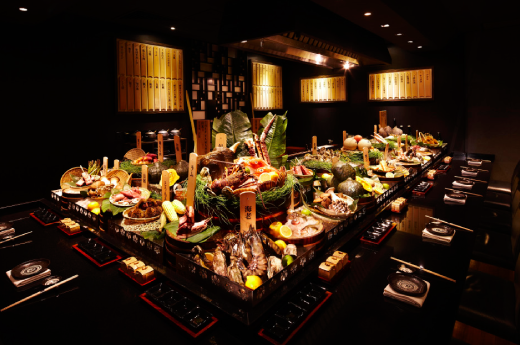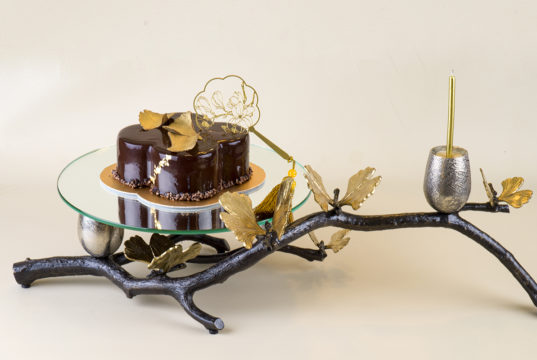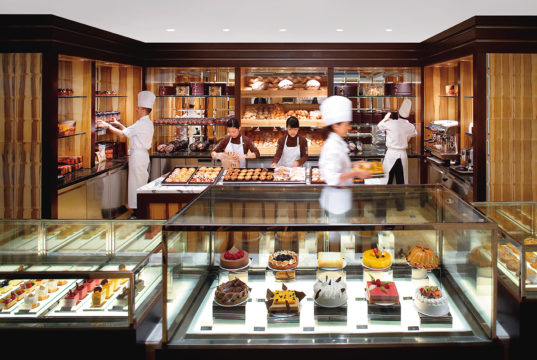Singaporean Specialist in Teppanyaki, Sushi and Robatayaki
Mikuni, which can be translated into “three countries,” is the popular Japanese restaurant at the Fairmont Singapore Hotel that takes diners on a culinary tour through three of Japan’s most popular cuisines: teppanyaki, sushi and robatayaki. Each cuisine has its own live station presided over by a master chef specialising in those dishes.
At his station, Head Sushi Chef Tsunenori Yamamoto treats diners to the restaurant’s speciality of Edomae Nigiri style sushi that maintains a delicate balance between the freshest fish and its accompanying ingredients. He sources the finest produce from the sea, air-flown from the famed Tsukiji and Kyushu markets four times a week. Each traditionally made Edomae sushi maintains a perfect balance between the size of the fish and volume of rice. Depending on the choice of seafood, Chef Yamamoto sprinkles some sushi with a flourish of salt whilst others are gently laced with a house-made soy that delicately seasons the fish without overpowering its natural flavours.
Teppan Master Chef Eric Yong entertains patrons with his dynamic skills at the teppanyaki station. He emphasises the importance in the precise control of the teppanyaki grill’s temperature which, when used expertly, creates an added charred smokiness that deliciously flavours the grilled ingredients.
Head Robatayaki Chef Nobukawa offers diners a taste of the freshest and most seasonal of Japanese ingredients, displayed like jewels amongst handcrafted woven baskets, leaves and herbs at his live station. He allows the freshness of the produce he sources to speak for itself, grilling each diner’s selection of ingredients and pairing them with his secret homemade sauces.
Presiding over all of them is Executive Chef Moon Kyung Soo, who specialises in exciting kaiseki dishes that seamlessly blend modern and century-old Japanese culinary techniques. Mikuni’s cuisine is complemented by the exceptional service and an extensive sake list provided by Singapore’s first certified Sake Sommelier, Nobuhiko Sano. The list includes a few select sake labels that are exclusive to Mikuni, a range of quality shochu and innovative sake cocktails.
(www.fairmont.com/singapore/dining/mikuni)
Robatayaki
Literally meaning “fireside-cooking”, robatayaki is a form of Japanese barbecue in which items of food on skewers are slow-grilled over hot charcoal. Robatayaki originates from the cooking techniques used in rustic farmhouses throughout Sendai, the largest city in the Touhoku (Northeast) region of Japan. Japanese fishermen cooked their catch over a charcoal fire using only an oar as a cooking utensil. In keeping with this tradition, robatayaki chefs today still use a wooden paddle to pass food to customers.
Japanese Restaurant Vocabulary
Stepping into an authentic Japanese restaurant can feel like entering another country. And when travelling to another country, it’s always helpful to learn a few key phrases of the local language.
Irrashaimase – This is the word the staff at most Japanese restaurants will say (or oftentimes shout) to guests as they enter. It simple means, “welcome.” You are not required to say anything in response.
Itadakimasu – Traditionally spoken before eating, similar to the phrase “bon appetit” in French or the phrase “selamat makan” in Indonesian. It literally conveys a sense of humble gratitude for the food you are about to receive.
Kampai – What you say when toasting beer or sake, the Japanese equivalent of “Cheers!”
Oishi – The Japanese word for delicious. If you want to tell your Japanese chef you like the food, use the phrase “Oishi desu!” meaning “It tastes great!”
Gochis?sama-deshita – A polite thing to say to your chef or the restaurant staff after you finish your meal. It literally means, “That was a feast.”




